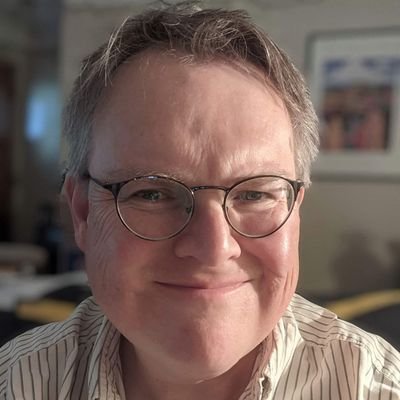By Michael Fuhlhage
It’s not an overstatement that I owe my success as a scholar to the American Journalism Historians Association. I want to use this column as second vice president to talk to everybody in the organization, but especially to those of you who joined recently as graduate students and junior faculty, about what getting involved has meant for me and how you can get the most out of being an active member.
The 2005 AJHA convention in San Antonio was my first time presenting research. I was a master’s student at the University of Missouri School of Journalism trying to figure out my way from the newsroom into the academic world, and I joined a crop of AJHA rookies that included scholars I now count as friends, including Gwyneth Mellinger, Jennifer Moore, and Keith Greenwood. I’m sure I knew far less about the way academe worked than anybody at that convention, and “wide-eyed” would be a charitable way to describe the nervous wreck that was me at my first academic convention. There was, as it turned out, no need for worry. The senior scholars took me in immediately, offered pointers, asked intriguing questions to help me deepen my thinking, and of course encouraged me to keep coming back. It’s a friendly, open, and welcoming group that I found immediately endearing and adopted as my scholarly home. I’ve been to all but one AJHA convention since then.
There are so many opportunities for members to push themselves in new directions, I came to learn. And I’ve benefited as a scholar from taking part in them. Here’s my progression and how taking part in AJHA committee service has helped me to grow.
After getting papers accepted for presentation a couple of times, my mentors in my doctoral program at UNC suggested I try organizing panels. Once I got the hang of that, I began submitting research in progress in my quest for feedback on emerging projects. Each of these outlets for sharing ideas is an opportunity to learn to be better at finding evidence and writing historical research.
After getting a couple of panels accepted, I was invited to join the Research Committee as panels competition coordinator.
Linda Lumsden told me when she recruited me to succeed her as research chair that overseeing the research papers competition would teach me more than I could imagine about what made excellent research in the form of accomplished scholars’ judgments about what made a successful paper and what elevated nominees for awards above the rest.
As research chair I also oversaw the Joseph McKerns Research Grant competition, a role that gave me and reviewers the opportunity to see how other scholars define excellence in research. Reading the files of grant winners was like taking a master class in how to construct proposals that ensure funders that their money will be well spent. Their example has given me ideas for how to formulate my own successful research funding requests.
The research chair also works with key members of the committee, the panels and research in progress coordinators, to make sure submission, reviewing, and acceptances went smoothly. It’s a role that puts you in the position to have positive contact with every author of an accepted research paper and funded grant proposal and to connect with scholars who serve as paper reviewers. It’s a role that helps build relationships with professors who are among the most likely academics to be invited to review your tenure file.
Those experiences as research chair gave me the confidence to run for and serve twice on the AJHA Board of Directors, joining in decision-making and advising about the direction of the organization. It was that service that led me to believe that I could handle entering the rotation from second vice president this year to first vice president next year to president after that—as long as I have my fellow members and leaders to show me the ropes and keep me pointed toward true north.
I’m serving for the reasons I laid out in my candidate bio last fall, namely these: As my scholarly home for 19 years, the AJHA has been a source of inspiration, instruction, direction, and friendship since San Antonio. Without it, I wouldn’t have made the connections that helped me achieve tenure, found an audience for my research, and found my scholarly purpose. It’s my goal to use my position in the AJHA’s leadership to encourage an expansive definition of diversity in scholarship, help junior scholars, and defend history against those who seek to undermine it.
The journey has been nourishing and fulfilling so far. It started with taking a small step by joining a committee and pitching in. The AJHA has done so much for me, and I am honored that I have the chance as second vice president to pull together the program for our next convention. See you in Pittsburgh!
Michael Fuhlhage is an associate professor in the Department of Communication at Wayne State University and currently serves as AJHA Second Vice President.

